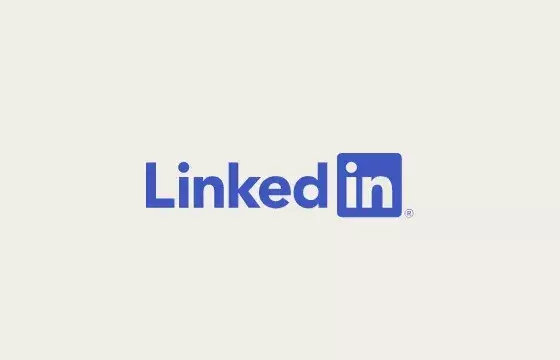In the rapidly evolving digital landscape, platforms like LinkedIn are recalibrating their approach to user data—this isn’t merely an update; it’s a strategic maneuver that could redefine the relationship between professional users and the tech giants that serve them. The recent changes, taking effect from November 3, 2025, introduce a complex web of data sharing with Microsoft, raising questions about privacy, control, and the true intent behind such moves. While the corporate narrative frames this as a standard enhancement for better ad targeting and AI functionalities, one has to scrutinize whether this is just the surface of a much deeper, more intrusive paradigm shift.
LinkedIn’s new terms mean that a broader scope of your activity—profile details, engagement metrics, and even content interactions—will be passed along to Microsoft, ostensibly to deliver more targeted advertising. However, beneath the veneer of improved personalization lies a potent strategy: consolidating user data to fuel advanced artificial intelligence models. This tactic, rarely discussed openly, hints at an underlying ambition to dominate not just the professional networking space but also the AI-driven content generation sphere. It prompts us to ask whether LinkedIn and Microsoft are truly doing this for user benefit or simply accumulating as much data as possible to bolster their competitive edge.
The Dual-edged Nature of Data Sharing and AI Enhancement
The most concerning aspect of this update is not the data sharing itself, but the implications of blending professional insights with AI training. LinkedIn claims that the data used for AI enhancement will exclude private messages, which may seem reassuring. Nonetheless, the use of profile details, content posts, and engagement metrics for AI training raises ethical issues around consent and transparency.
For a platform built on professional trust, such developments threaten to undermine the very foundation of credibility. When users realize that their publicly shared content and seemingly benign profile information are feeding into AI models, it stirs discomfort. These models aim to facilitate better matchmaking between job seekers and recruiters, but they also carry risks like misinterpretation and algorithmic bias. Moreover, the default setting being “on” for AI training indicates that many users might be unknowingly complicit in a process that amplifies the reach and sophistication of corporate AI systems.
From a strategic standpoint, this move positions LinkedIn and Microsoft to be significant players in the AI arms race—creating smarter, more intuitive engagement tools, automation features, and personalized content. But at what cost? The more data that flows into these AI engines, the more opaque the system becomes. Users may find their digital footprints used in ways they wouldn’t agree with if fully aware, raising serious questions about autonomy and trust.
The Power Play: Personal Privacy vs. Corporate Innovation
In contemplating these changes, it’s impossible to ignore the broader power dynamics at work. Large corporations have long exploited data as their most valuable commodity, often without clear or sustained user consent. LinkedIn’s updates represent a logical progression in this covert game—leveraging the wealth of professional information it holds to enhance AI capabilities not necessarily aligned with user interests.
While opting out remains an option, it’s buried within complex settings and lengthy explanations. The default “on” position effectively nudges users toward passive acceptance, transforming privacy concerns into a matter of inconvenience rather than principle. The real question becomes: are users truly in control of their digital identities, or are they mere data points feeding a system designed to optimize corporate profit margins?
Furthermore, these developments underscore a troubling trend—if platforms like LinkedIn normalize the extraction and AI repurposing of user data, what boundaries are left to safeguard personal and professional integrity? As AI-driven tools become more intertwined with our work and interactions, the line separating helpful innovation from invasive surveillance blurs significantly. This capacity for pervasive data collection threatens to erode the trust underpinning professional networks, ultimately transforming them into ecosystems where individuals constantly weigh convenience against privacy.
Challenging the Narrative of Normality
Given the seemingly mundane legal updates, it’s tempting to dismiss these changes as standard industry fare. Yet, this perspective fails to acknowledge the profound implications of normalized data commodification. The assumption that data sharing for “better ads” and “AI training” is just part of the digital landscape is dangerously naive.
In reality, these policies reinforce a reality where users are passive subjects in a data economy they barely understand. As LinkedIn integrates more AI-driven features—profile updates, content creation assistance, targeted outreach—users may find themselves subtly coerced into surrendering their data repeatedly. What begins as a convenience might evolve into an operational necessity—one in which opting out feels like opting out of the platform entirely.
The broader societal consequence is the normalization of surveillance capitalism in what is arguably one of the most professional, career-oriented spaces online. This erosion of privacy, masked behind promises of relevance and innovation, signifies a shift where individuals’ careers, ambitions, and identities become resources to be strategically exploited. It’s a potent reminder that technological advancements often come with a price: the cost of personal sovereignty.
In conclusion, the new LinkedIn-Microsoft data sharing policies should serve as a wake-up call. They expose how corporate interests increasingly leverage user data under the guise of progress, often at the expense of individual privacy and control. Critical awareness and proactive engagement are essential for users who wish to retain agency in a world where data is the new currency.

